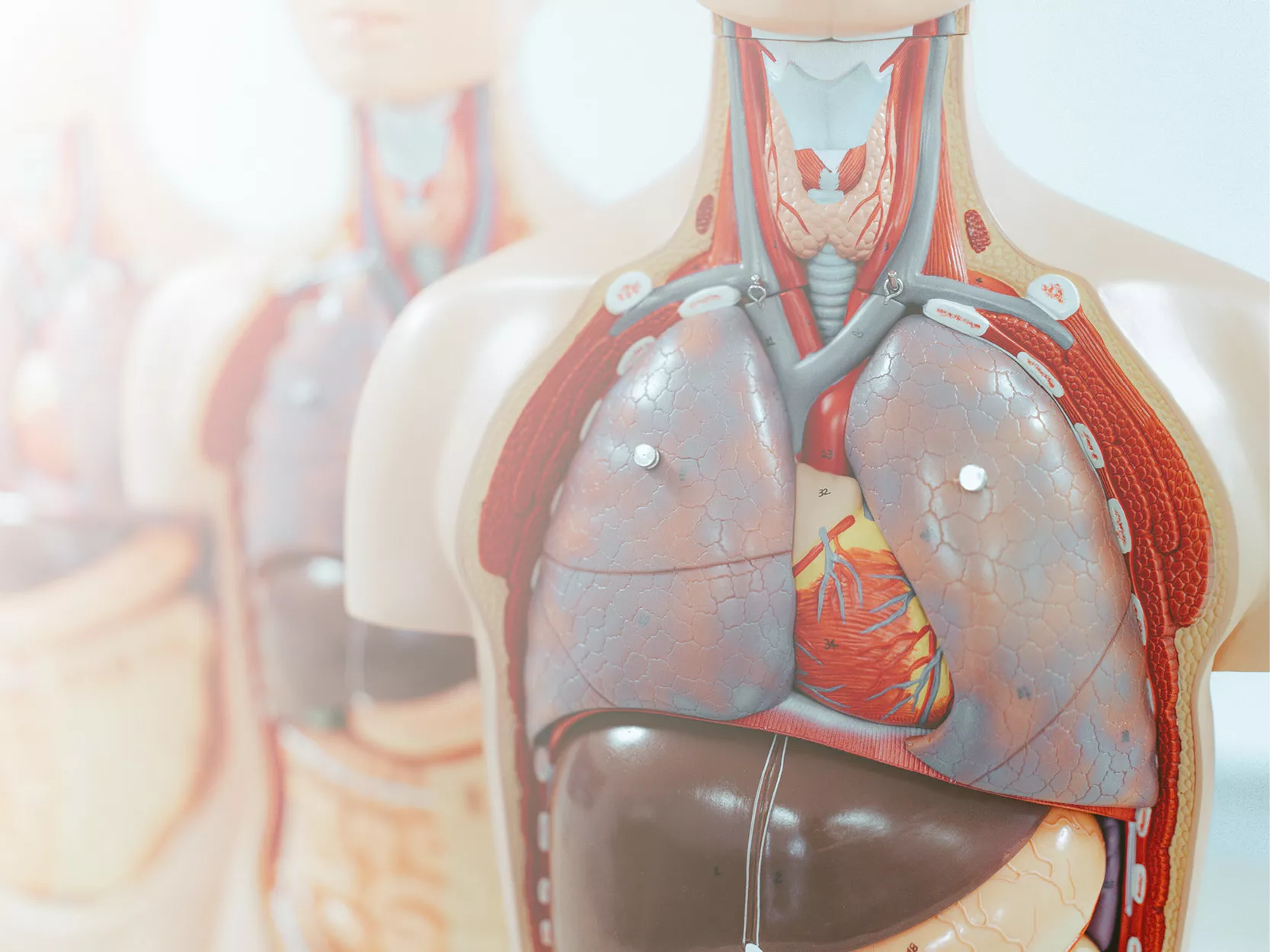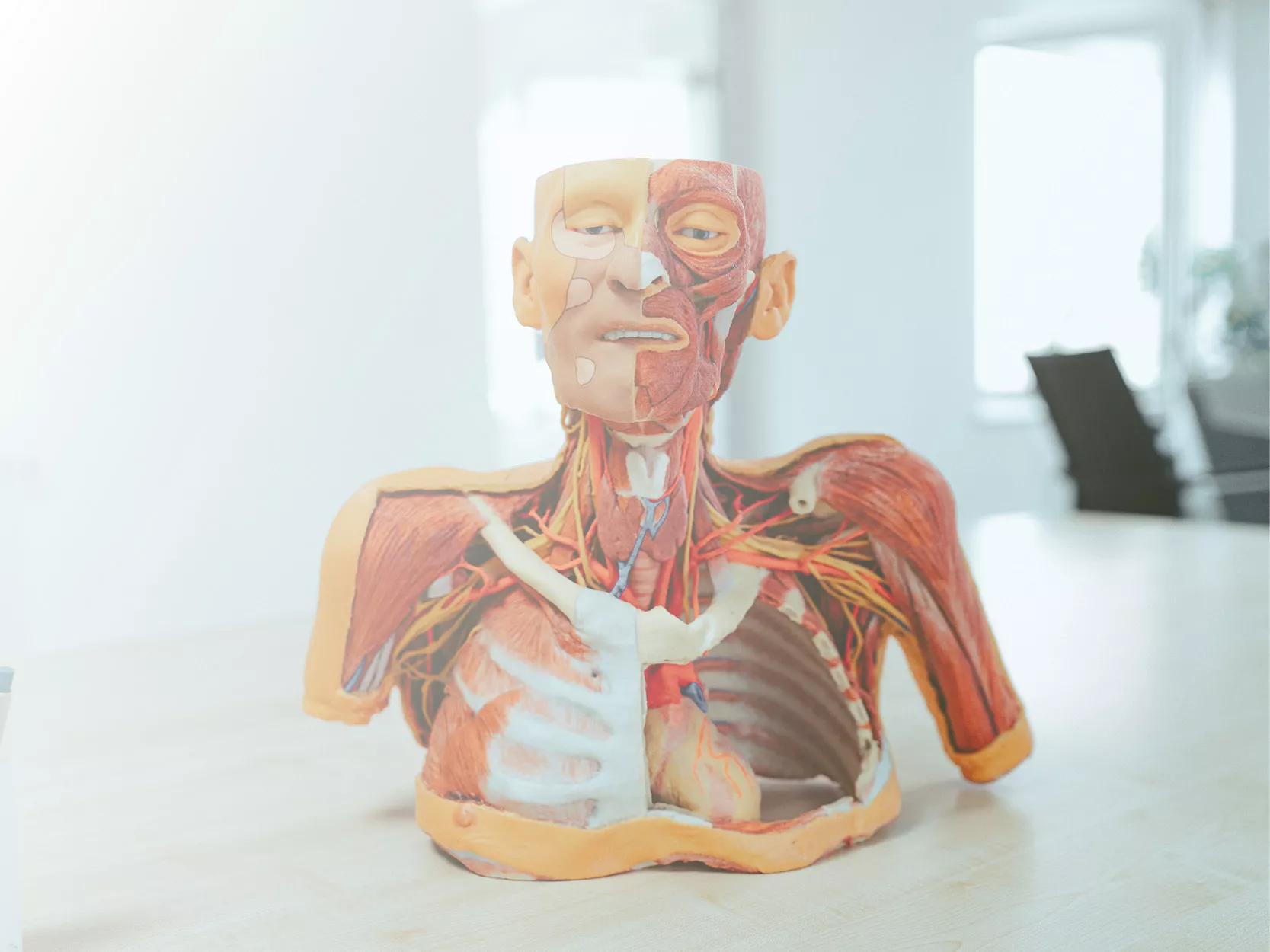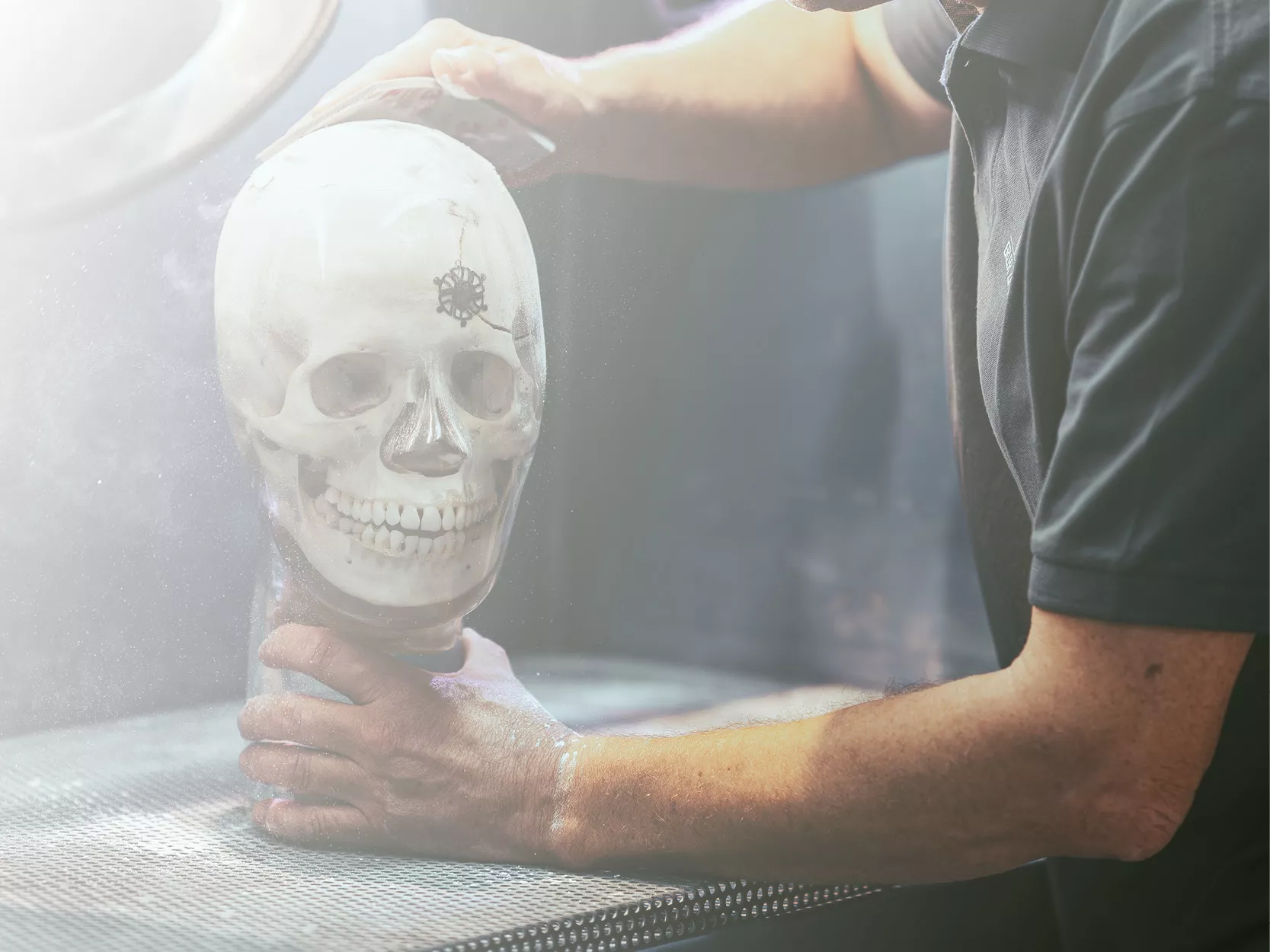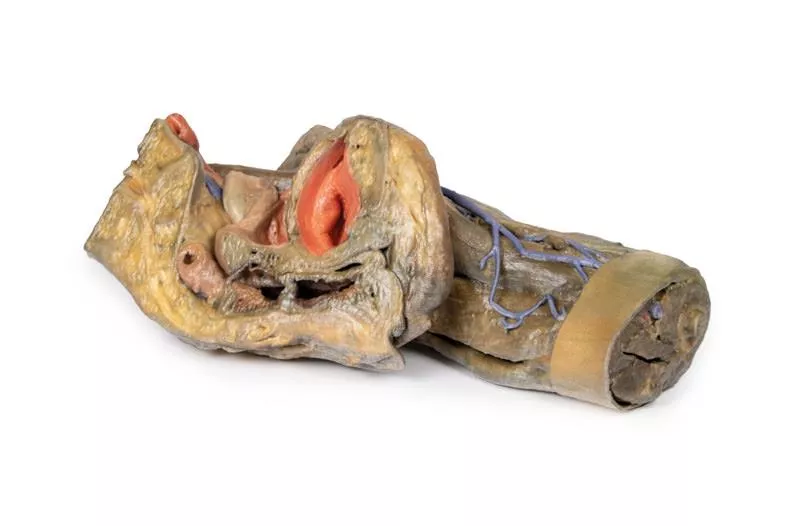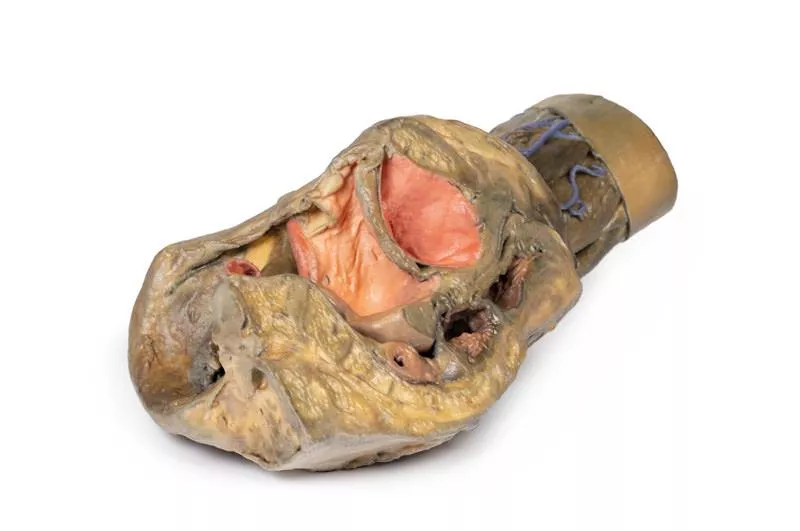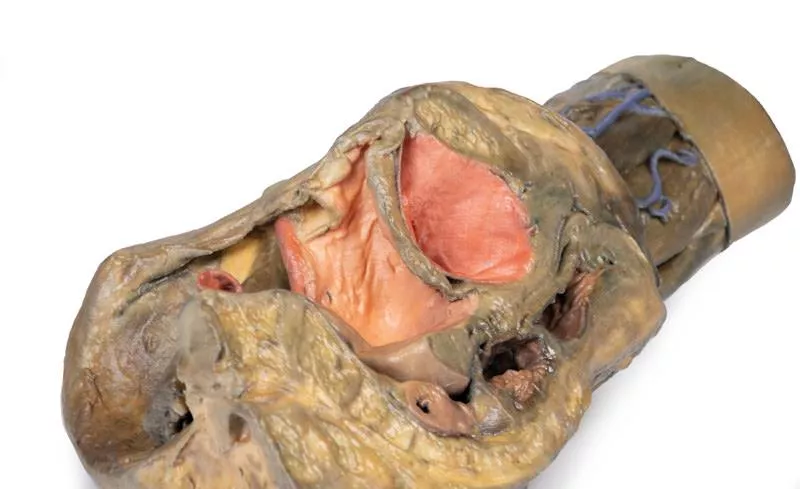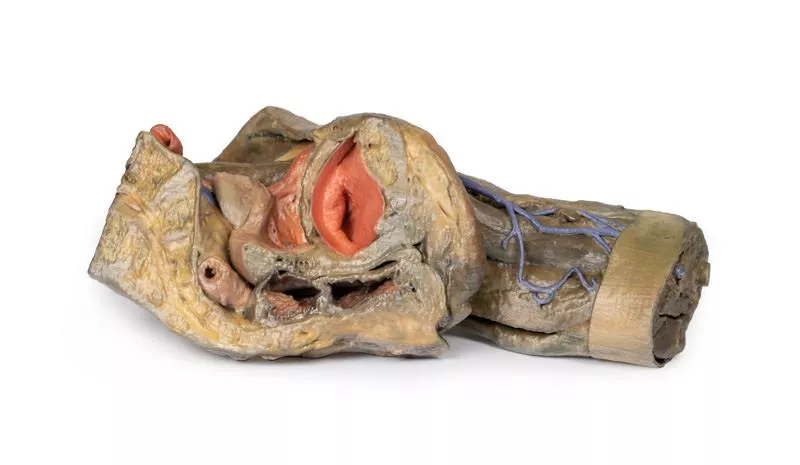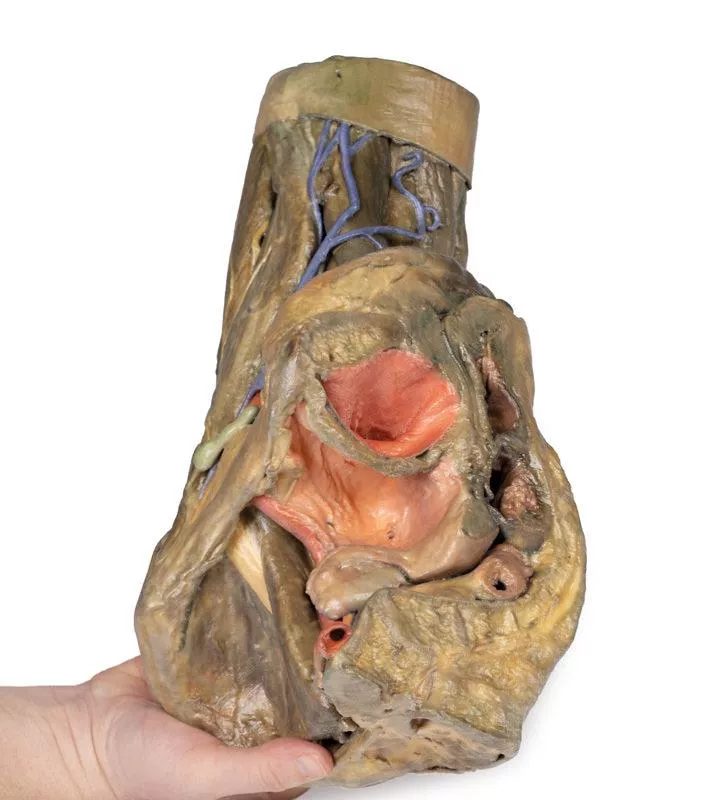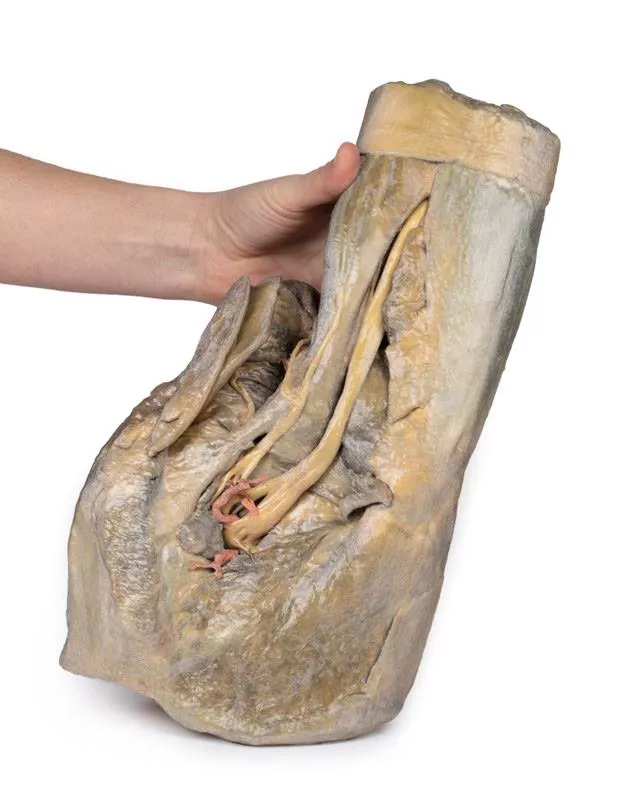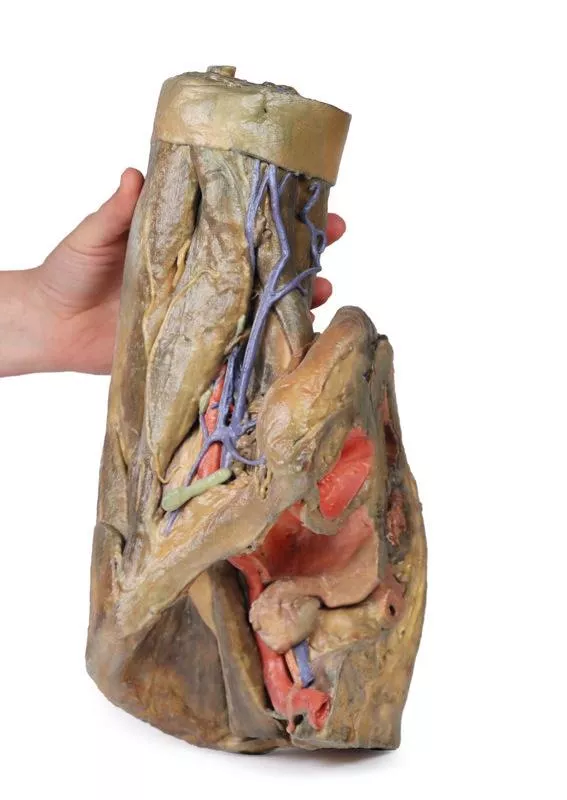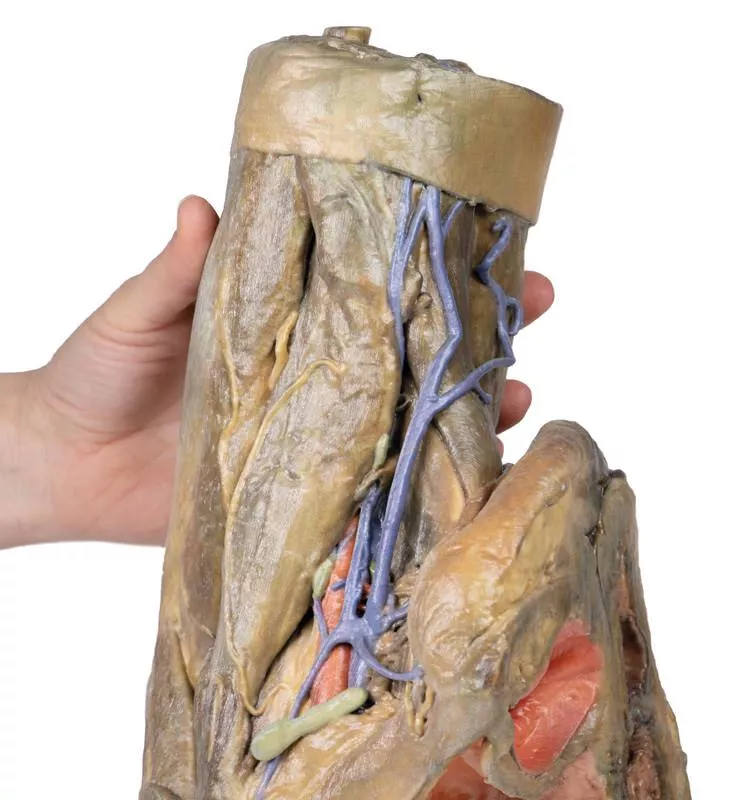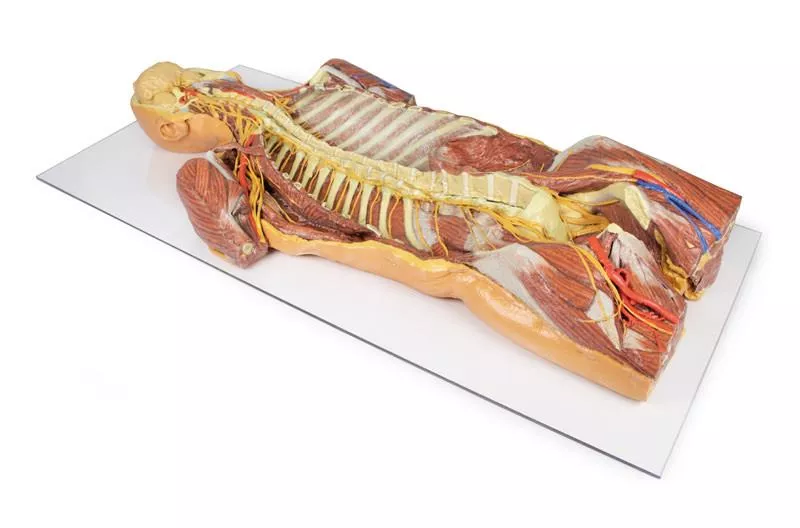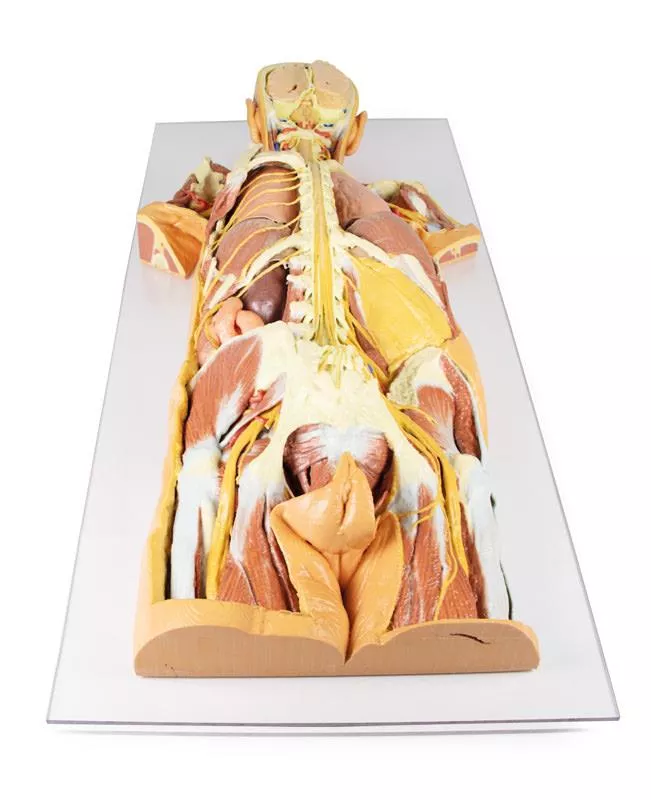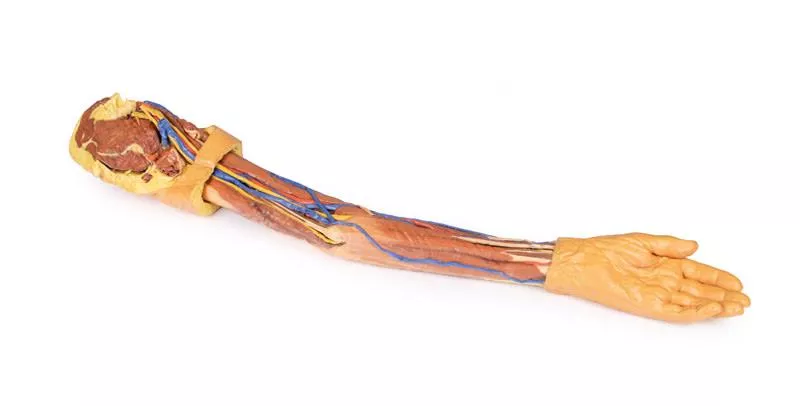Produktinformationen "Female hemipelvis and thigh"
Dieses detaillierte 3D-Modell zeigt die linke Hälfte eines weiblichen Beckens, das in der mittleren Sagittalebene geschnitten ist und sich bis zur proximalen Mitte des Oberschenkels erstreckt.
Beckenorgane und Peritoneum
- Sichtbare Strukturen: Harnblase, Gebärmutter, Scheide und Enddarm (von vorne nach hinten).
- Das Peritoneum ist erhalten und zeigt die vesikouterinen und rektouterinen Taschen.
- Das breite Ligament, der Eileiter, die Fimbrien und der linke Eierstock sind in der Nähe des Beckenrandes erkennbar.
Gefäße und Nerven
- Die A. iliaca communis und die A. iliaca externa verlaufen neben der V. iliaca communis und dem M. psoas major in Richtung des subinguinalen Raums.
- Der Ureter kreuzt diese Gefäße.
- Der N. femoralis ist zwischen dem M. psoas major und dem M. iliacus sichtbar.
Vorderer Oberschenkel und Leistenbereich
- Die oberflächliche Faszie wurde entfernt, wodurch die Strukturen des Oberschenkels bis zum Rand des Perineums freigelegt wurden.
- Das Femurdreieck wurde präpariert, um Folgendes zu zeigen:
Hintere Gesäßregion
- Der große Gesäßmuskel wurde entfernt, um die tiefer liegenden Gesäßmuskeln freizulegen.
- Der Piriformis-Muskel wurde zurückgezogen, wodurch Folgendes freigelegt wurde:
- Die Muskeln M. obturatorius internus, M. gemelli und M. quadratus femoris werden freigelegt.
- Die A. pudenda interna und der N. pudendus verlaufen in Richtung Fossa ischioanalis.
Beckenorgane und Peritoneum
- Sichtbare Strukturen: Harnblase, Gebärmutter, Scheide und Enddarm (von vorne nach hinten).
- Das Peritoneum ist erhalten und zeigt die vesikouterinen und rektouterinen Taschen.
- Das breite Ligament, der Eileiter, die Fimbrien und der linke Eierstock sind in der Nähe des Beckenrandes erkennbar.
Gefäße und Nerven
- Die A. iliaca communis und die A. iliaca externa verlaufen neben der V. iliaca communis und dem M. psoas major in Richtung des subinguinalen Raums.
- Der Ureter kreuzt diese Gefäße.
- Der N. femoralis ist zwischen dem M. psoas major und dem M. iliacus sichtbar.
Vorderer Oberschenkel und Leistenbereich
- Die oberflächliche Faszie wurde entfernt, wodurch die Strukturen des Oberschenkels bis zum Rand des Perineums freigelegt wurden.
- Das Femurdreieck wurde präpariert, um Folgendes zu zeigen:
- Die Arteria femoralis und die Vena femoralis, wobei die Vene Zuflüsse aus der Vena saphena magna, der Vena circumflexa iliaca superficialis, der Vena pudenda externa und der Vena pudenda profunda erhält.
- Der Nervus femoralis lateral zur Arterie.
- Die vorderen Hautnerven und ein Teil des lateralen Hautnervs über dem Sartorius-Muskel.
- Die Leistenlymphknoten unterhalb des Leistenbandes.
- Der Nervus femoralis lateral zur Arterie.
- Die vorderen Hautnerven und ein Teil des lateralen Hautnervs über dem Sartorius-Muskel.
- Die Leistenlymphknoten unterhalb des Leistenbandes.
Hintere Gesäßregion
- Der große Gesäßmuskel wurde entfernt, um die tiefer liegenden Gesäßmuskeln freizulegen.
- Der Piriformis-Muskel wurde zurückgezogen, wodurch Folgendes freigelegt wurde:
- Der Ischiasnerv, der aus dem Nervus tibialis und dem Nervus peroneus communis gebildet wird.
- Die Arteria glutea superior und inferior.
- Der N. cutaneus posterior femoris verläuft parallel zum Ischiasnerv.
- Die Arteria glutea superior und inferior.
- Der N. cutaneus posterior femoris verläuft parallel zum Ischiasnerv.
- Die Muskeln M. obturatorius internus, M. gemelli und M. quadratus femoris werden freigelegt.
- Die A. pudenda interna und der N. pudendus verlaufen in Richtung Fossa ischioanalis.
- Ihre Äste, darunter der N. rectalis inferior, sind in der Nähe des Beckenzwerchfells und des äußeren Analsphinkters sichtbar.
🔬 3D-Anatomie-Reihe – Nachbildungen des menschlichen Körpers!
26. August 2025
Entdecken Sie exklusive 3D-gedruckte Modelle des menschlichen Körpers – aus echten Präparaten erstellt.
Erler-Zimmer
Erler-Zimmer GmbH & Co.KG
Hauptstrasse 27
77886 Lauf
Germany
info@erler-zimmer.de
Achtung! Medizinisches Ausbildungsmaterial, kein Spielzeug. Nicht geeignet für Personen unter 14 Jahren.
Attention! Medical training material, not a toy. Not suitable for persons under 14 years of age.





